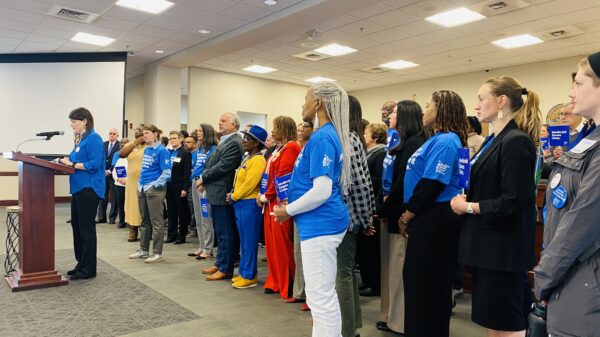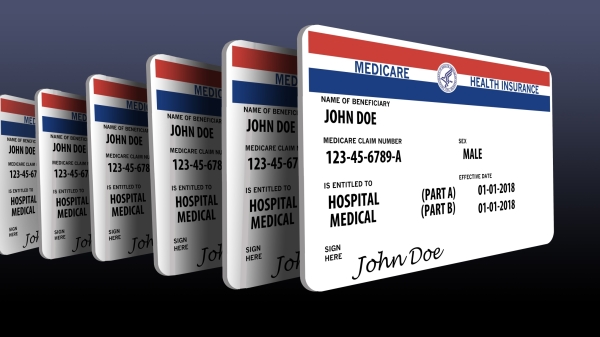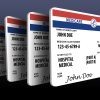Monday is the last day for seniors on Medicare to change their Medicare Advantage care and prescription drug benefit plans for 2021. Open enrollment this year was from Oct. 15 to Dec. 7. Medicare is available for Americans who are at least age 65 and for qualifying disabled persons.
This is also the only time of year for seniors who did not sign up for Medicare Part B or the prescription drug benefit to elect to receive coverage for 2021. This does not apply to seniors who have existing credible coverage through another source such as medical coverage through their employer. If for some reason your coverage were to end, such as the loss of a job or retirement or the death of a spouse, that event would create a special enrollment period so that you can pick up coverage during the calendar year when or just after that qualifying event occurs.
Medicare has three parts. Part A is the hospital benefit. Seniors earn that through their working lives and for most people there is no cost to qualify for Medicare Part A. There are copays with part A that can reach thousands of dollars in a lengthy hospital stay. There is a yearly Medicare Part A deductible for 2021 of $1,484.
Medicare Part B pays for the other costs of medical coverage, chiefly being physician services. You have to sign up for Medicare Part B and there is a cost per month that varies based on a senior’s income and ability to pay. The typical senior pays $148.50 a month for Medicare Part B, though there are five higher tiers for upper-income seniors going all the way up to $491.60 a month for seniors making more than $413,000 a year. For most, the Part B premium is deducted from their Social Security check. Part B is roughly an 80:20 split with Medicare paying 80 percent of the costs and the Medicare beneficiary paying roughly 20 percent of the cost as well as the Medicare Part B deductible. Medicare Part A and Part B together are what is collectively referred to as “Original Medicare.”
Many seniors have Medigap insurance, often called a Medicare supplement that pays some or all of the deductibles and copays with original Medicare. The Medicare supplements are contracts between the beneficiary and the company issuing the policy. The costs of Medicare supplements generally go up as the senior ages, but the benefits do not change and once covered you can not lose your coverage as long as you keep paying the premiums. If you have a Medicare supplement you do not have to do anything during open enrollment. Seniors who want to purchase a Medicare supplement during their initial qualifying period, either at age 65 or at a qualifying event such as retirement do not have to medically qualify for Medigap coverage. For a senior who did not purchase coverage during a guaranteed qualifying period, there are medical questions; and the insurer has the option to deny coverage based on medical history. Most Medicare supplements do not have a network. They are accepted by any doctor or any hospital that takes Medicare patients and are good in all 50 states as well as all counties in Alabama.
Medicare Part D was established with the passage of the Medicare Prescription Drug, Improvement, and Modernization Act on Dec. 8, 2003. That is the Medicare prescription drug benefit. These are prescription drug plans sold by private insurers. The cost of the prescription drug plans varies based on a senior’s ability to pay. Seniors, even those with a Medicare supplement, have to purchase a prescription drug plan in order to receive the prescription drug benefit.
For 2021 there are 1,439 different Stand-Alone Medicare Part D prescription drug plans (or PDPs) being marketed by insurers and through their pharmacy partners across the county. Each plan has different tiers and drugs that are covered under one Part D plan may have a higher copay or not be covered at all under a competing plan. Similarly, your copays can be higher if you use an out-of-network pharmacy. It is a good idea to comparison shop your drug plans online.
Medicare Advantage plans, sometimes referred to as Medicare Part C replaces original Medicare with an insurer managed care network. Medicare essentially contracts out a senior’s care to an insurer. They typically have less cost than a Medicare supplement upfront but can have deductibles and copays. They often offer supplemental benefits such as fitness clubs, discounts on hearing aids, vision benefits, dental, etc. not offered with original Medicare. Since Medicare Advantage plans are networks, a member has to use the doctors and hospitals that are in networks, and often advantage plans are not portable across state lines. In many cases, they are not even offered in every county in Alabama. There are often higher fees for using a doctor out of network. Since Medicare Advantage is a year by year contract, the terms of the plans can change and even disappear when the year ends. If you have a Medicare Advantage plan it is wise to see how your plan will change for 2021 and shop to make sure that it is still the best plan for you and your circumstances.
If you purchased a Medicare Advantage plan or prescription drug plan for 2021 and think you made a mistake in your selection, in most cases you can undo that decision by purchasing another plan from a competitor as long as you do that by Monday.
If you are low income, you may be what is referred to as a “dual-eligible.” Lower-income seniors may qualify for both Medicare and Medicaid. For some, Medicaid will pay the cost of the Part B premiums and there are reduced Medicare Part D plan costs. For even poorer persons, Medicaid will pick up almost all of the Medicare deductibles and copays. Dual-eligibles have their own network in Alabama and some doctors are not in that network.
This is not to be confused with open enrollment under the Affordable Care Act, which is also underway for people who don’t qualify yet for Medicare.
If you do not have healthcare coverage, now is the time to complete your 2021 application for health coverage. Open Enrollment under the Patient Protection and Affordable Care Act ends on Dec. 15. To get started, log in to HealthCare.gov to update your information, see if you qualify for assistance to reduce the amount you pay for your monthly premium, and enroll in a health plan.
You must apply by the Dec. 15 deadline to be able to purchase healthcare coverage in 2021 on the healthcare exchange. Blue Cross Blue Shield of Alabama is by far the largest provider of under 65 healthcare insurance in Alabama, but there are other options. Before purchasing coverage, be sure to check with your doctor’s office to see what plans he or she accepts for 2021.






















































